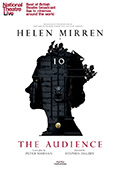It took me a while to realize that I’d developed a system for sustaining my writing over long periods of time. There was nothing intentional about it. It only became evident in hindsight. Here’s how my writing process seems to work:
- I get an idea for a writing project and start to think about it. A lot of it’s just that. Thinking. Sometimes I also take notes. If I can sustain my attraction to the idea for a few days or weeks, I’ll get serious and really get to work on it.
- Once started, I can almost guarantee that eventually I’ll run into an internal (or external) roadblock. For me, that usually means that I don’t know how to proceed or that I’ve lost confidence in the validity of the project.
 Rather than bash my head against a wall, I’ve found that it’s better for me to simply stop working on the project that has me frustrated and set it aside to quietly “ferment” while I tackle something else.
Rather than bash my head against a wall, I’ve found that it’s better for me to simply stop working on the project that has me frustrated and set it aside to quietly “ferment” while I tackle something else.- Since I have amassed a good quantity and variety of work in various stages of completion, this is when I take up a writing project that I had previously set aside. In 9 cases out of 10, the magic of fermentation has done its work and what had seemed an insurmountable problem has been reduced to a manageable scale.
- The whole thing is a cycle. While I’m working on one writing project, others are fermenting. It seems so obvious, doesn’t it? But when you’re stuck (or at least when I’m stuck) it’s not always easy to remember that you don’t have to sit there in misery. You can move on and come back later.
Fermenting. It’s not just for yogurt!.


